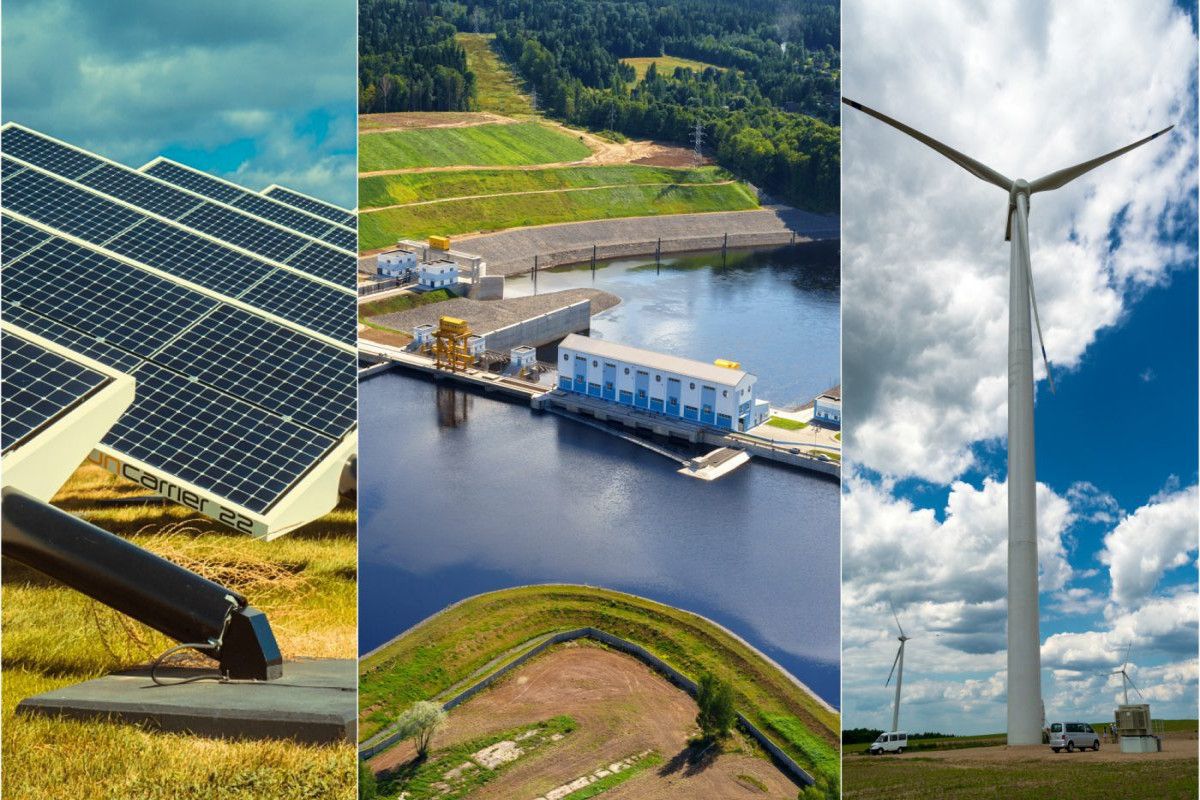Azerbaijan’s inspirational mega energy projects in service of European nations

A number of mega-projects implemented by Azerbaijan over recent years have yielded very successful results, elevating it to the status of a central energy hub for Europe.
Azerbaijan's rich energy resources and Europe's drive for diversification of its own supplies are key elements that have pushed Baku to lead the way for the construction of now operational oil and gas pipelines from the Caspian region to the heart of the shilly-shallying Europe at a time when the relations between Moscow and Brussels were not at the lowest ebb.
Now that the relations between the Kremlin and the West have further deteriorated in the wake of the war in Ukraine, Baku's determination to have independent access to international markets via friendly regional nations has led to the fruition and the number of European nations purchasing Azerbaijani natural resources, in particular, gas is on the rise.
The purpose of the Southern Gas Corridor was to ensure the development of the second stage of the Shah Deniz gas condensate field and firstly, the export of natural gas to Turkiye and then Southern Europe through the extended South Caucasus Gas Pipeline, TANAP, and TAP.
The second stage of the full-scale development of the Shah Deniz project - the Shah Deniz Stage 2 project, a giant project to deliver Azerbaijani gas to Europe and Turkiye, was to supply gas to European markets through the Southern Gas Corridor to improve the energy security of the old continent and this project is already operational.
The main elements of the Southern Gas Corridor project are - the full-scale development of the Shah Deniz gas condensate field; the expansion of the South Caucasus Pipeline (SCPX); The Trans Anatolian Natural Gas Pipeline (TANAP) and the Trans-Adriatic Pipeline (TAP) project.
These projects are now operational and in view of an increase in the number of customers of Azerbaijani offshore gas, the latter is determined and ready to develop new deposits to meet the growing need for gas in Europe.
Azerbaijan's green energy projects
Estimates show that Azerbaijan has the potential to produce 200 gigawatts of green energy, which is 25 times more than the country’s currently installed energy capacities. This amount is equal to the energy need of 25 countries in the size of Azerbaijan. The government's recent drive is to add its green energy capacity to its overall strength and have the advantage of selling it to the energy-hungry nations in Europe and bringing back both capital, know-how, and investment for its own needs.
Fast transition in the rapidly growing world
Right after the second Karabakh war of 2020 great opportunities opened for Azerbaijan's way to put the potential of the liberated regions at the service of the nation and meet the worldwide demand for green energy. This meets international demand amid the biggest requirement for safe energy sources and the growing threat to the environment amid climate change. By shifting into another phase of energy export, Azerbaijan invited the world's leading companies to joint production and sale of green energy from both onshore and offshore sources.
In January 2020, Azerbaijan signed a contract with Masdar on the construction of the 230-megawatt Garadagh Solar PV plant. In the same year, Azerbaijan inked an agreement with ACWA Power on the construction wind power plant with an installed capacity of 240 megawatts in the Absheron and Khizi districts. In June 2021, Azerbaijan signed another agreement with bp on the construction of 240 megawatts AC solar power plant in Jabrayil.
Simultaneously, working on green energy projects, the Azerbaijani government held meetings with heads of European nations to work out details of delivering it to the markets by inking agreements on a strategic partnership in the field of green energy development and transmission between the governments of Azerbaijan, Georgia, Romania, and Hungary on December 17, 2022. The agreement envisaged exporting 3-4 gigawatts of green energy from Azerbaijan through Georgia under the Black Sea to Europe.
However, one should bear in mind that these efforts proved possible through the successful efforts of the Azerbaijani government amid over and covert pressures of regional powers determined to torpedo projects that are not in line with their national interests. The economic opportunities of Azerbaijan are not limited only to the West, these opportunities are also lying in the Far East through Zangazur - part of the Middle Corridor.
Iran’s rising fear
In parallel with the projects in question, the Azerbaijani government disclosed another route, the Azerbaijan-Zangazur- Turkiye-Europe Energy Corridor, known as the Jabrayil Energy Hub project, which anticipates the export of green energy generated in Karabakh.
As with Azerbaijan’s oil and gas mega projects, the green energy initiative is upsetting some forces, especially Iran, that want to dictate its own interests by creating problems in the region and pushing Armenia to the uncompromising position over Baku-initiated projects. Iran goes the extra mile to impede the opening of the Zangazur corridor, by threatening Azerbaijan indirectly. Holding military drills on the Azerbaijani border soon after the victory in the second Karabakh war, coupled with the armed attack on the nation's Tehran embassy, and the killing of a security officer, are some of Iran's most recent anti-Azerbaijani moves and the desire to gain upper hand in the South Caucasus as Russia's influence is dwindling in the South Caucasus.
The Zangazur corridor does not only favor the South Caucasus but the wider region and world. The Zangazur corridor will not only provide direct access to Turkiye but also connect Europe with Central Asia and further to southeastern Asia bypassing Iran.
---
Follow us on Twitter @AzerNewsAz
Here we are to serve you with news right now. It does not cost much, but worth your attention.
Choose to support open, independent, quality journalism and subscribe on a monthly basis.
By subscribing to our online newspaper, you can have full digital access to all news, analysis, and much more.
You can also follow AzerNEWS on Twitter @AzerNewsAz or Facebook @AzerNewsNewspaper
Thank you!

